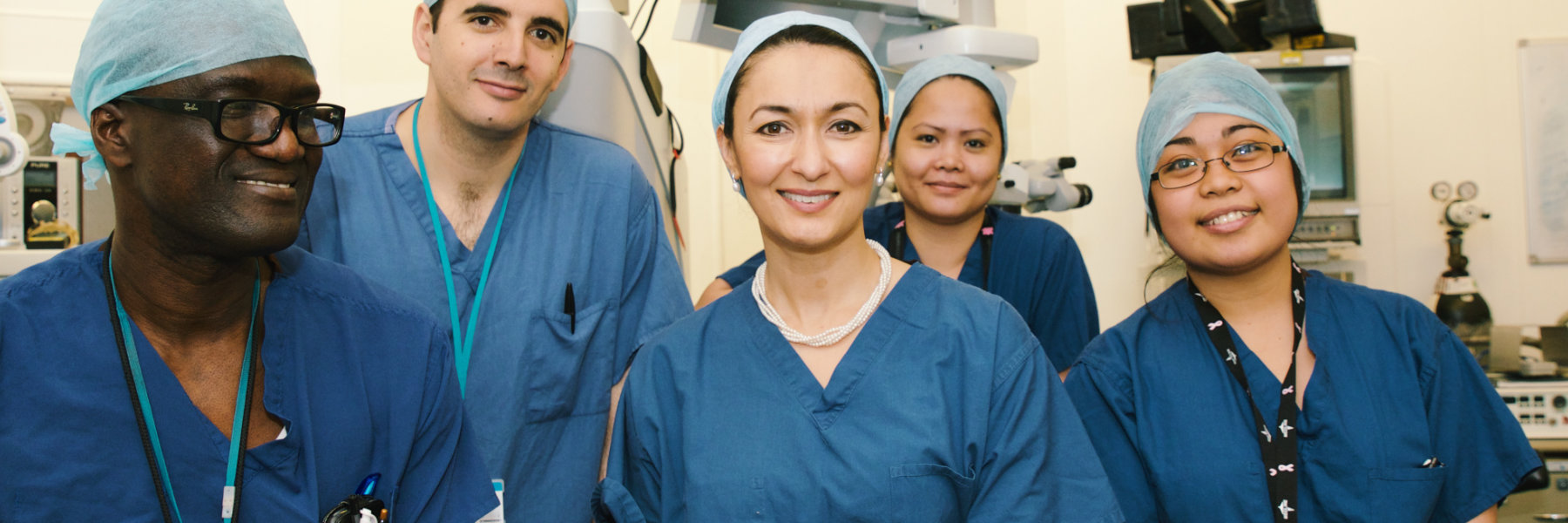What is an intravitreal Injection?
Intravitreal injections are given into the vitreous cavity of the eye. This is the back part of the eye, which is filled with a gel known as vitreous.
The treatments are usually given as course of injections 1 month apart for a minimum of three or four months, depending on which condition is being treated. They may continue for many months according to the response to treatment. There are some conditions that only require a single injection, or only require an injection once every few months.
There are different drugs that can be injected, and they work in different ways.
Drugs such as ranibizumab (Lucentis) and aflibercept (Eyelea) act to reduce the leakage of fluid from the small blood vessels at the macula. In the NHS they are only licensed for use in certain cases of macular oedema and wet macular degeneration. Avastin is a drug from the same family and works in the same way. It is one of the most common injection drugs used worldwide and is also an effective option.
Ozurdex is a steroid implant that provides an anti-inflammatory effect for a few months.
Iluvien is a steroid implant that provides an anti-inflammatory effect for up to 3 years.
Ocriplasmin (JETREA ®) is a once-only injection to treat vitreomacular traction and small macular holes with vitreomacular traction
What to expect at your intravitreal injection appointment
Intravitreal injections are used for many eye conditions, including wet macular degeneration, diabetic maculopathy and macular holes with vitreomacular traction. The injection is given as an outpatient procedure and the procedure takes only a few minutes.
When you arrive, your vision will be re-decked and you will have dilating drops to enlarge the pupil and anaesthetic drops to numb the surface of the eye. You will lie on a couch, the eye area will be cleansed to reduce the risk of infection, and an eyelid speculum is placed to keep the eyelids open on the side having the injection. The injection itself is very quick.
After the injection is given, your vision will be checked, the back of the eye will be examined and you will be given antibiotic drops to use at home for a few days.
Most people do not have any adverse effects after the injection. The commonest is a degree of redness at the injection site. Some people notice a slight ache in or around the eye for a few hours after the injection. Other short-term side effects include floaters and raised pressure in the eye.
One of the most serious risks following an injection is the development of a severe eye infection known as endophthalmitis. You should seek a review with your doctor if you develop any of the following:
- Increasing pain
- Increasing redness
- Decreasing vision
Other side effects include vitreous haemorrhage, retinal detachment and cataract

Anaesthesia for intravotreal injections
Most intravitreal injections can be done with just local anaesthetic using drops – you will be awake during the injection.
Some patients are not good candidates for local anaesthesia – either they are unable to lie still for the required time, or they are very nervous or simply have a fear of being awake whilst they have an eye procedure. In such situations I can arrange for you to have general anaesthesia as long as your general health can tolerate it – the decision is one that we make with the anaesthetist looking after you to make sure you are safe at all times. I also have the option of offering light sedation instead of full general anaesthesia.
Often, the fear and anxiety about the injection is far worse than the actual procedure itself, so I usually suggest that you try it with drops anaesthesia, and if you really can’t cope, we can re-arrange it with more anaesthetic cover.
How long do I have to stay in hospital for an intravitreal injection?
Intravitreal injections are done as an outpatient procedure under local anaesthesia with drops. This means that you will be in the clinic for 1-2 hours, and go home from the outpatient clinic. If you have required hospital admission for general anaesthesia or sedation for your injection, you can also go home the same day depending on how well you recover.